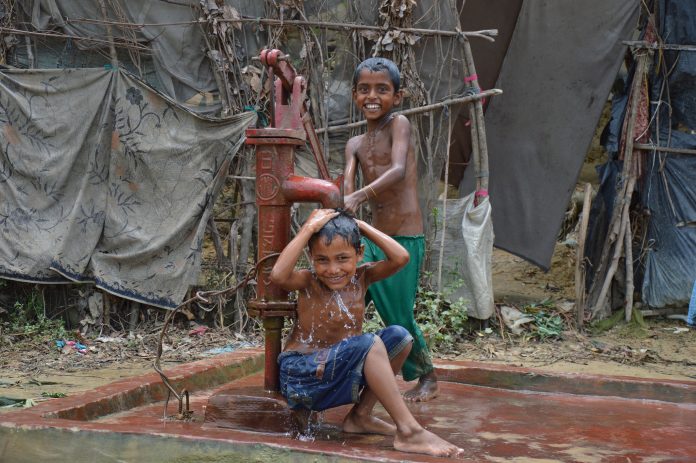Myanmar’s security forces may be guilty of genocide against the Rohingya Muslim minority, according to the United Nations’ top human rights official. Genocide is defined by the UN as acts meant to destroy a national, ethnic, racial or religious group in whole or in part.
Addressing a special session of the UN Human Rights Council called by Bangladesh on December 5, Zeid Ra‘ad al-Hussein, the UN High Commissioner for Human Rights, said none of the 626,000 Rohingya who have fled violence to Bangladesh since August should be repatriated to Myanmar unless there was robust monitoring on the ground.
As reported by the Reuters news agency, however, Myanmar’s ambassador, Htin Lynn, said his government was working with Bangladesh to ensure returns of the displaced in about two months and “there will be no camps”.
In the past, Zeid has described the situation as a “textbook case of ethnic cleansing”.
On December 5, Zeid described reports of “acts of appalling barbarity committed against the Rohingya, including deliberately burning people to death inside their homes, murders of children and adults; indiscriminate shooting of fleeing civilians; widespread rapes of women and girls, and the burning and destruction of houses, schools, markets and mosques”.
“Can anyone – can anyone – rule out that elements of genocide may be present?” he told the 47-member state forum.
Shahriar Alam, Bangladesh’s junior foreign affairs minister, told the session in Geneva that his country was hosting nearly one million “Myanmar nationals” following summary executions and rapes “as a weapon of persecution”.
Mainly Buddhist Myanmar denies the Muslim Rohingya are its citizens and considers them foreigners.
According to Reuters, Zeid urged the Council to recommend that the UN General Assembly establish a new mechanism “to assist individual criminal investigations of those responsible”.
Prosecutions for the violence and rapes against Rohingya by security forces and civilians “appear extremely rare”, he said.
But Myanmar denies committing atrocities against the Rohingya. Its envoy Htin, referring to the accounts, said: “People will say what they wanted to believe and sometimes they will say what they were told to say.”

